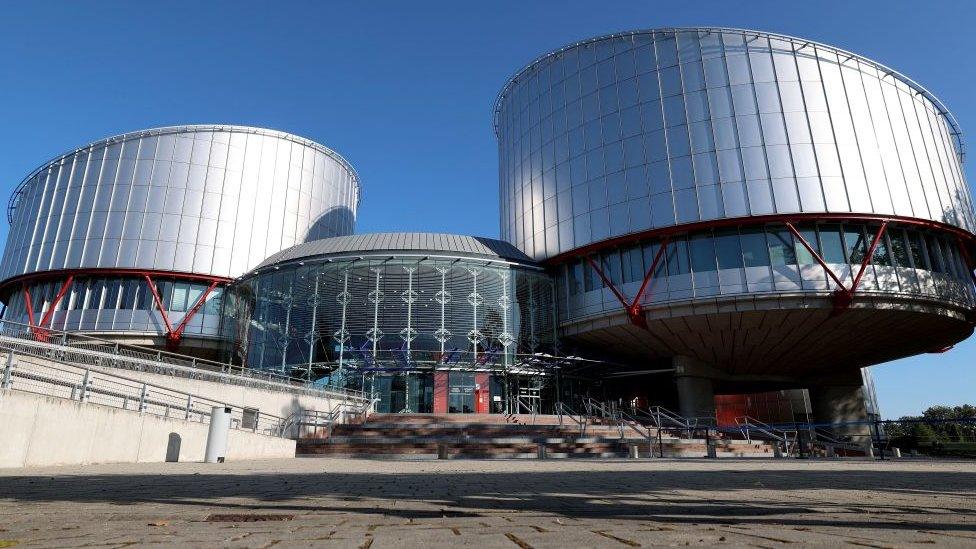US murder accused's legal bid against extradition from NI fails
- Published

Jonah Horne's final appeal against extradition was dismissed by the European Court of Human Rights on Tuesday
An American man wanted over a drugs-related killing in Florida has lost a last-ditch legal bid to avoid extradition from Northern Ireland.
Jonah Horne, 28, faces a charge of second-degree murder over the fatal shooting of another man in 2016.
He has been in custody at Maghaberry Prison since his arrest in Lisburn, County Antrim, in March 2017.
His final appeal against extradition was dismissed by the European Court of Human Rights on Tuesday.
Judges sitting in Strasbourg rejected Mr Horne's claims that, if convicted, he would be exposed to the real risk of life imprisonment without parole.
With all attempts to block extradition now exhausted, he is expected to be flown back to the United States within the next 28 days.
Shot at close range
Mr Horne is accused of shooting 25-year-old Jacob Walsh at close range while the victim sat in a car during a drug deal at North Military Trail, Boca Raton on 7 June, 2016.
In a seven-year battle against extradition, his lawyers claimed it would breach Article 3 of the European Convention on Human Rights, which prohibits inhuman or degrading treatment or punishment.
Along with fears that he could receive a whole-life sentence or even the death penalty, further concerns were raised about the state of Florida's prisons.
During earlier hearings at the High Court in Belfast, assurances were provided that prosecutors would not seek more than 40 years imprisonment on conviction.
Mr Horne's legal team argued those pledges would not be binding on any sentencing judge.
In 2021, the Strasbourg Court imposed an interim stay on extradition.
However, that injunction has now been lifted after Mr Horne's arguments were held to be unsubstantiated.
Judges declared: "The applicant cannot be said to have adduced evidence capable of showing that his extradition to the United States would expose him to a real risk of treatment reaching the Article 3 threshold on account of the risk that he would be sentenced to life imprisonment without parole."
'No effective parole system'
In a statement following the ruling, Mr Horne's barrister and solicitor for the appeal, Ben Keith and Roger Sahota, vowed to closely monitor his treatment in the US.
Mr Keith said: "It is difficult to see how anyone will be able to show that they will receive a life without parole sentence.
"The evidential test has become much higher with recent cases."
According to Mr Sahota, the lack of parole in most US states and federal cases has yet to be grappled with.
"The evidence is that there is no effective parole system," he said.
"But it has not been tested as the court consistently finds that there is no real risk."